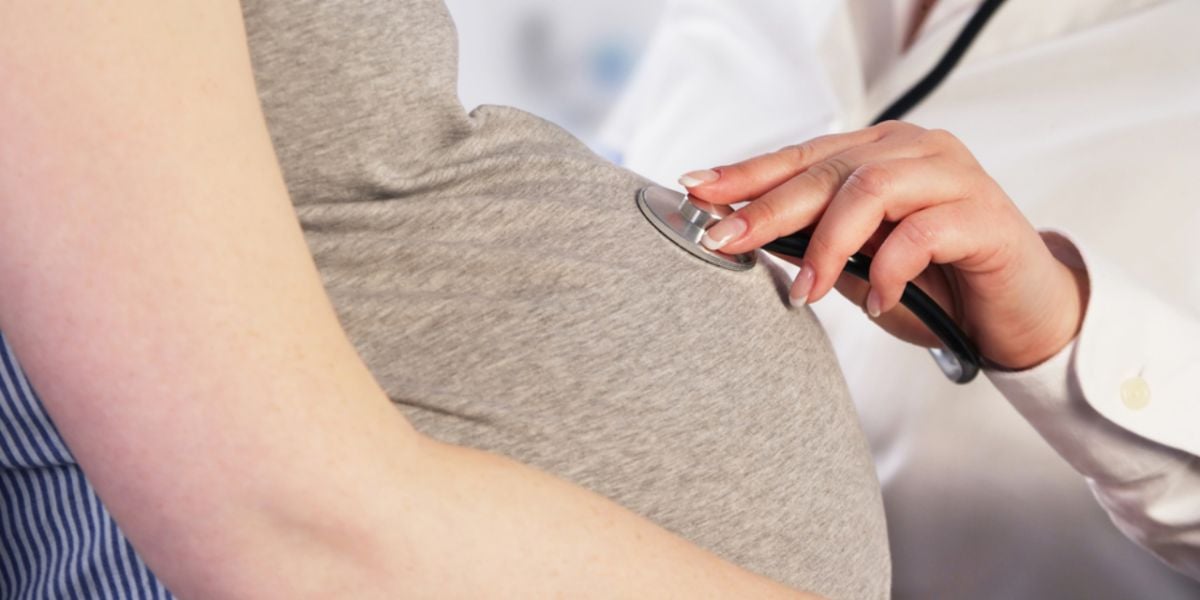
Luxembourg strongly encourages childbirth through concrete actions: quality support for expectant mothers, courses for parents (and even grandparents!), generous allowances, advantageous maternity leave… Pregnant and breastfeeding women benefit from extensive assistance, easy access to medical care, and significant legal protection.
The healthcare system
Luxembourg has a high-quality healthcare system accessible to all residents and cross-border workers. The CNS (National Health Fund) covers prenatal care, such as ultrasounds and consultations, as well as delivery-related expenses, which are fully or partially reimbursed, depending on the total cost.
As we'll see later, services offered by private and public maternity hospitals can vary greatly depending on the level of comfort desired. It's important to check in advance to know the exact reimbursement rate from the CNS based on your situation. If needed, you can opt for private supplementary insurance to cover any additional costs.
After birth, children's healthcare expenses are covered 100% by the CNS until they turn 18.
Note that assisted reproductive technology (ART) is available in Luxembourg and may be covered by the CNS depending on the case. Surrogacy (GPA) is currently prohibited, but discussions on the topic are ongoing in the country.
Prenatal checkups
Once pregnancy is confirmed by a doctor, prenatal care is strictly regulated. Several regular appointments are scheduled, and further visits may be added to best protect the health of the pregnant woman and the baby.
Three ultrasounds are planned:
- The first between the 10th and 13th weeks of amenorrhea
- The second between the 20th and 24th weeks of amenorrhea
- The third between the 32nd and 34th weeks of amenorrhea
A weekly monitoring or cardiotocography (CTG) is also set up from the eighth month until delivery.
Gynecological consultations are, of course, scheduled and reimbursed as well. Their frequency depends on the needs of the pregnant woman, and appointments can be more frequent in case of high-risk pregnancies. A dental checkup is also included.
Various tests are offered, such as blood tests to screen for diseases or infections (syphilis, hepatitis, urinary tract infection…), toxoplasmosis tests (several tests throughout the pregnancy if the woman has never contracted the disease), and the Triple Test, a blood test that assesses the risk of Down syndrome (Trisomy 21). In case of high risk, an amniocentesis may be performed.
Birth options
At the hospital: this is the choice of the majority of women. There are public and private maternity wards, offering similar quality of service. Medical equipment is generally modern, and safety is optimal. Some facilities offer minimally medicalized deliveries or "comfort" or "first-class" rooms. These are more expensive and can include two connecting rooms so the other parent can sleep on-site, and services such as fresh croissants for breakfast or dedicated spaces for visits.
At home: in cases of uncomplicated pregnancies, it's possible to have a home birth. However, a midwife must be present to ensure the safety of both mother and child.
Ambulatory or outpatient delivery: Luxembourg offers a unique flexibility with this hybrid delivery mode. It allows you to give birth in a maternity ward and return home a few hours later, once approved by the doctor. A midwife, reimbursed by the CNS, will thereby provide daily home visits to check the mother and baby's health and answer parents' questions for the first 10 days after birth. In case of complications, an ambulatory delivery is automatically converted into a standard hospital stay to ensure the safety of the mother and baby.
Midwives, doulas, and prenatal classes
These two professions, essential for a serene pregnancy, are well represented in Luxembourg. All midwives, whether working in the public or private sector, offer home consultations.
Parent support associations, such as the Liewensufank initiative, offer doula services to holistically support expectant parents.
In addition to the antenatal classes offered by maternity hospitals, workshops are made available by Liewensufank or Kannerschlass on practical topics (babywearing, breastfeeding, diaper changing, first aid, self-hypnosis, consultations with lactation experts…) or more philosophical topics (parental roles, avoiding parental burnout, managing a biting child…).
Maternity and parental leave
All expectant mothers, including self-employed women, are entitled to maternity leave, provided they have contributed to the CNS for at least six out of the 12 months prior to pregnancy. Maternity leave is divided into two parts:
- An eight-week prenatal leave before the expected delivery date
- A 12-week postnatal leave after birth
In the case of premature birth, unused prenatal leave is added to postnatal leave (up to 20 weeks); in case of birth after the expected date, prenatal leave is automatically extended. Postnatal leave remains 12 weeks.
Women continue to receive their salary, up to five times the minimum wage, via a financial allowance paid by the CNS, based on the highest salary earned in the three months before the leave.
During pregnancy and maternity leave, women cannot be dismissed, and they enjoy special conditions. For instance, they may stop working earlier depending on the nature of their job, or have specific accommodations at work to protect their health.
Maternity leave is considered effective working time: women continue to accumulate vacation days, retain all benefits (bonuses, in-kind benefits…), and their seniority is not affected.
Upon returning to work, breastfeeding women are entitled to two 45-minute breaks, which can be combined into one 90-minute break, to feed their baby.
Once maternity leave ends, it can be extended by parental leave, which is shared between the parents. Several options are available (full-time, part-time in various setups), offering flexibility for young parents to balance work and family life. To learn more about the available options and the rate of pay for parental leave, contact the CAE (Children Future Fund).
In most cases, allowing for some esceptions, cross-border workers enjoy the same rights as residents in terms of pregnancy, childbirth, maternity, and parental leave.
Allowances
Luxembourg provides several financial allowances to support parents. These include birth grants and generous family allowances that increase as the child grows. Once again, the CAE is the primary contact to learn about your entitlements.
Abortion
It is possible to terminate an unwanted pregnancy under certain conditions. A woman can choose to have an abortion up to 12 weeks of pregnancy (or 14 weeks of amenorrhea). Before the procedure, a mandatory medical consultation is required to ensure all necessary information has been provided. After 12 weeks, an IVG is only allowed for medical reasons. In all cases, the procedure is free.
Useful links:
We do our best to provide accurate and up to date information. However, if you have noticed any inaccuracies in this article, please let us know in the comments section below.











